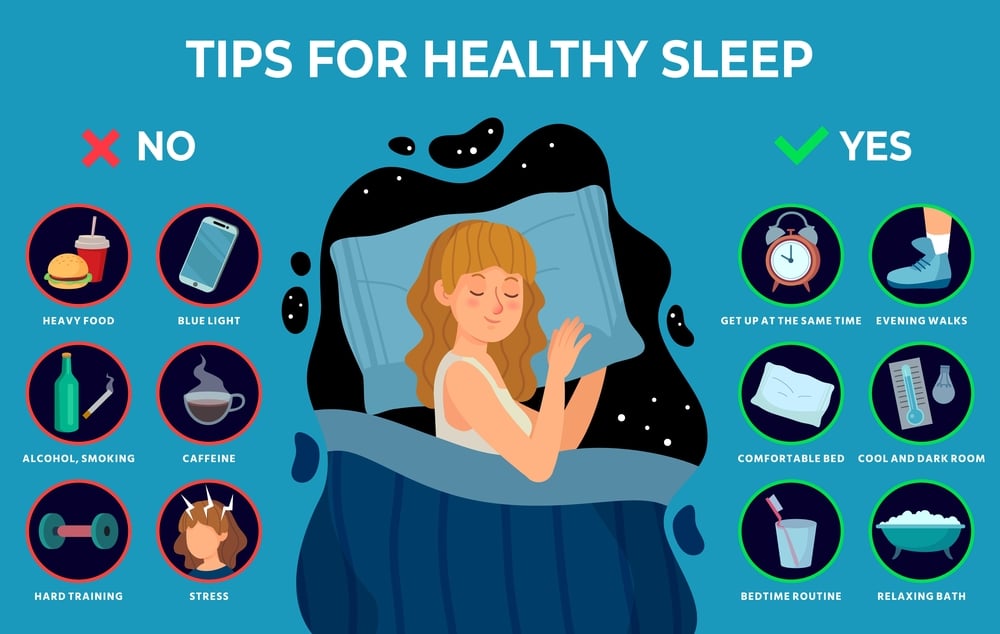By Jacob Maslow — Branded Content
Summer is just around the corner, and with it comes the opportunity to optimize your nighttime routine. The longer days and warmer weather provide the perfect environment for taking care of your body and mind before you hit the hay. Optimizing your nighttime routine can improve your sleep and help you wake up feeling restored and ready to take on the day. In this article, we’ll share 10 ways to optimize your nighttime routine this summer.
1. Create a Sleep-Friendly Environment
The first step to optimizing your nighttime routine is to create a sleep-friendly environment that’s cool, dark, and quiet. If necessary, invest in a white noise machine or a good pair of earplugs to block out any distracting sounds. Use blackout curtains to keep out any light pollution from streetlights or cars.
For optimal sleep, keep your bedroom temperature cool, between 60-67 degrees Fahrenheit. A comfortable mattress and pillow can also help improve the quality of your sleep.
2. Use Natural Sleep Aids
If you have trouble falling or staying asleep, you may want to consider using natural sleep aids. Certain natural supplements and herbs can help promote relaxation and better sleep. Some popular options include melatonin, hemp extract, and chamomile tea. Try using a sleep patch infused with melatonin and hemp extract and brew a cup of chamomile tea. However, it’s important to speak with your healthcare provider before taking any new supplements or herbs, as they may interact with other medications you’re taking.
3. Establish a Consistent Sleep Schedule
Consistency is key in getting a good night’s sleep. Make a plan to head to bed and wake up at the same time every day, even on Saturday and Sunday. This can help maintain your body’s circadian and promote better sleep.
4. Avoid Screen Time Before Going to Sleep
Electronic devices emit blue light, a certain kind of light that can interfere with your body’s natural cycle, making it harder to fall asleep. Limit your screen time before bed by setting aside all electronics at least 30 minutes before bedtime. Instead, try reading a book or taking a relaxing bath to wind down before sleep.
5. Practice Relaxation Techniques
Stress and anxiety can interfere with your ability to fall asleep and stay asleep. To combat this, try practicing relaxation techniques before bed. Deep breathing, meditation, and gentle yoga poses can help soothe your mind and relax your body. You may also find it helpful to write down your thoughts in a journal or practice gratitude exercises to shift your mindset to a more positive one.
6. Exercise During the Day
Exercise is a great way to promote better sleep, but it’s important to time your workouts carefully. Avoid exercise too close to bedtime, as this can leave you feeling wired and energized. Instead, aim to exercise earlier in the day, preferably in the morning or early afternoon. This will give your body time to wind down and prepare for sleep later in the evening.
7. Avoid Caffeine and Alcohol Before Bed
Caffeine and alcohol can interfere with your sleep, so try to avoid them before bedtime. As a stimulant, caffeine can keep you awake, so try to limit your consumption to the morning or early afternoon.
Alcohol may make you sleepy at first, but it can disrupt your sleep later in the night. If you do choose to drink alcohol, make sure you do it in moderation and avoid drinking within three hours of bedtime.
8. Take a Warm Bath or Shower
A warm bath or shower before bed can help relax your muscles and prepare your body for sleep. The warm water can also help lower your body temperature, which can promote better sleep. Add some calming essential oils like lavender to enhance the relaxing effects of your bath or shower.
9. Practice Good Sleep Hygiene
Good sleep hygiene involves establishing habits and routines that promote better sleep. This can include avoiding naps during the day, using your bed only for sleep and intimacy, and keeping a consistent sleep schedule. Good sleep hygiene can help you create an environment that supports healthy sleep patterns and helps you get the rest you need.
10. Wind Down With a Relaxing Activity
In addition to relaxation techniques, incorporating a relaxing activity into your nighttime routine can help signal to your body that it’s time to wind down for sleep. This can be anything from reading a book, listening to calming music, or practicing gentle stretching. Find an activity that helps you feel calm and relaxed, and make it a regular part of your nighttime routine.
Conclusion
Optimizing your nighttime routine is a great way to promote better sleep and wake up feeling refreshed and ready to take on the day. By creating a sleep-friendly environment, establishing a consistent sleep schedule, limiting screen time, taking a warm bath or shower, and more, you can set yourself up for success. So, take advantage of the long summer days and make the most of your nighttime routine.
Photo Courtesy // Jacob Maslow //





